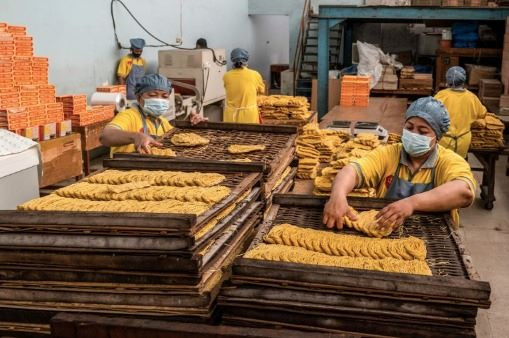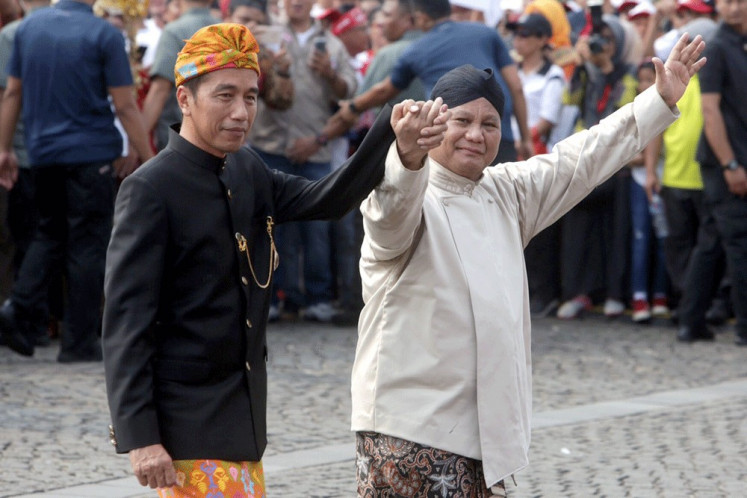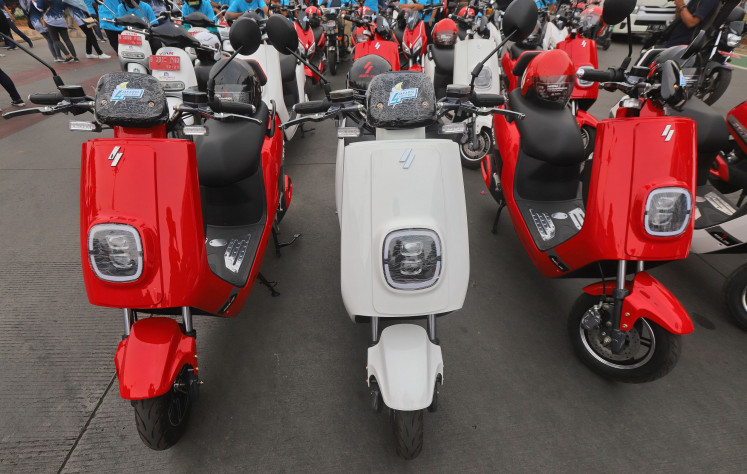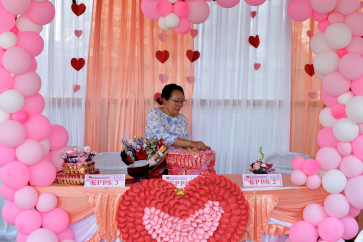Indonesia’s valentine: Vote buying and democratic backsliding
It is the people who must rise to defend the principles of democracy, demand accountability from their leaders and uphold the rule of law.
Change text size
Gift Premium Articles
to Anyone
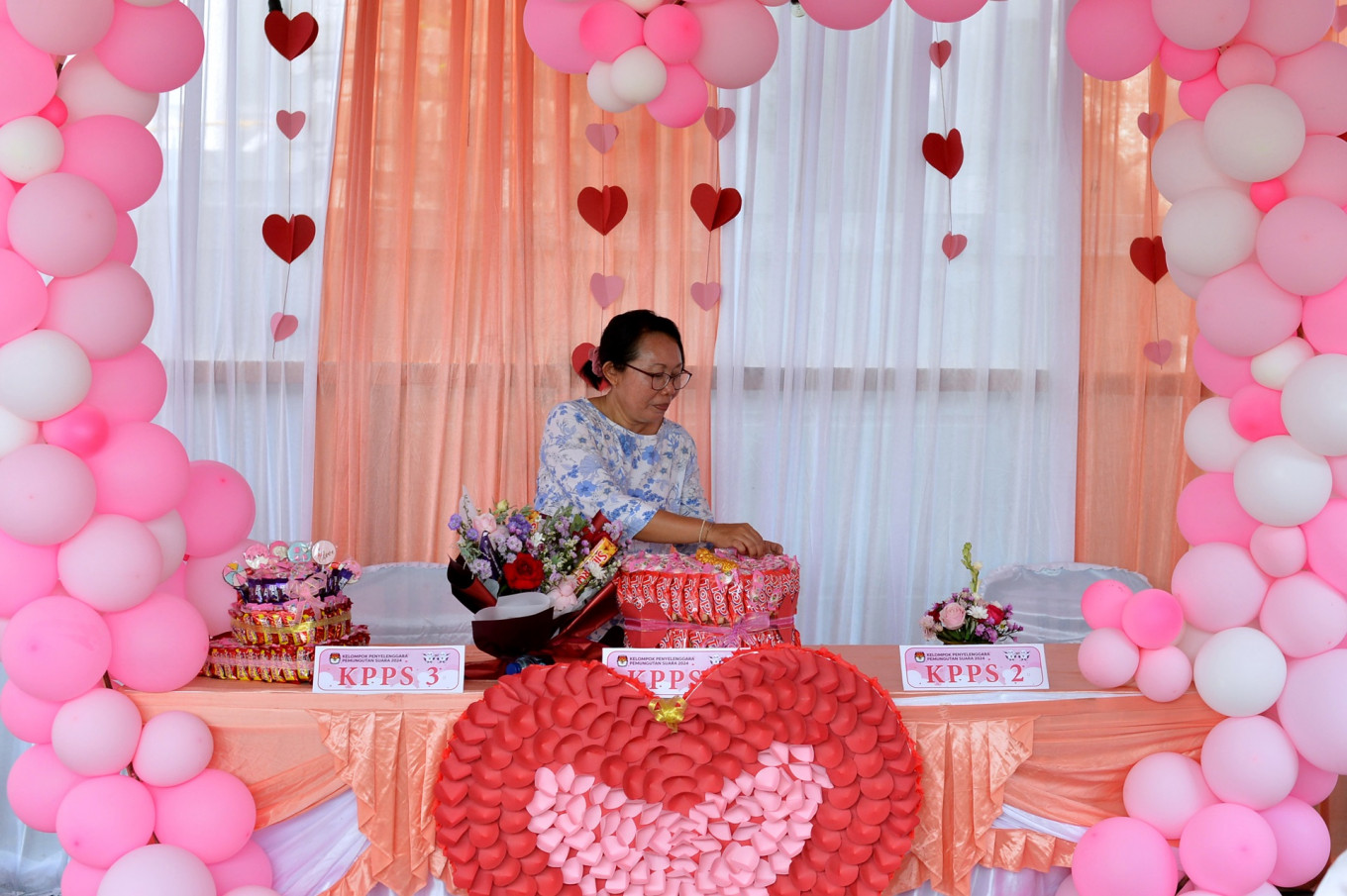 A poll worker prepares Valentine's Day-themed decorations on Feb. 13, 2024, at a polling station in Banjar Tunjung Sari, Denpasar, Bali. The local poll administrators (KPPS) decorated the polling station for Valentine's Day to woo voters to cast their vote in the 2024 general election. (Antara/Fikri Yusuf)
A poll worker prepares Valentine's Day-themed decorations on Feb. 13, 2024, at a polling station in Banjar Tunjung Sari, Denpasar, Bali. The local poll administrators (KPPS) decorated the polling station for Valentine's Day to woo voters to cast their vote in the 2024 general election. (Antara/Fikri Yusuf)

During almost every Valentine’s Day, cautionary flyers against the celebration's Western cultural values circulate in many Muslim-majority regions of Indonesia. While not universally opposed, Indonesia has maintained a love-hate relationship with Valentine's Day that is characterized by a mixture of acceptance and reservation.
However, this year, the dynamics surrounding Valentine's Day were particularly noteworthy, not due to a perceptible shift in its cultural significance, but rather because it coincided with the nation's most significant democratic event.
Across the country, the landscape has been transformed, not by romantic hues of pink, but by the vibrant display of political party banners heralding presidential and legislative candidates. In the days leading up to Feb. 14, discussions on political matters reached a crescendo, underscoring the gravity of the moment for Indonesian democracy.
On the dawn of Valentine's Day, a darker reality loomed— the exchange of votes for groceries or a couple hundred thousand rupiah and promises of future betterment became a deep-seated practice in Indonesian politics.
This phenomenon is widely known as “serangan fajar” (predawn attack), a bleak reality that stains Indonesia’s democracy. In the early morning of Feb. 14, as couples elsewhere celebrated Valentine’s Day with romantic gestures, many Indonesians found themselves engaged in a different kind of exchange that eroded the very foundation of democracy.
Serangan fajar unfolds in the darkness before dawn, when the streets are still quiet, and the day has yet to fully begin. It is a time when clandestine deals are struck, and the integrity of the electoral process is compromised. For some, it is a means of survival, an opportunity to alleviate the burdens of poverty, albeit temporarily. For others, it is a calculated strategy to secure power and influence at any cost.

The practice of vote buying perpetuates a cycle of corruption and disenfranchisement under which the voices of the marginalized are drowned out by the clamor of vested interests. It erodes trust in the electoral system and undermines the principles of accountability and transparency. Despite efforts to combat it, including legislative measures and public awareness campaigns, serangan fajar persists, casting a shadow over Indonesia's democratic aspirations.





